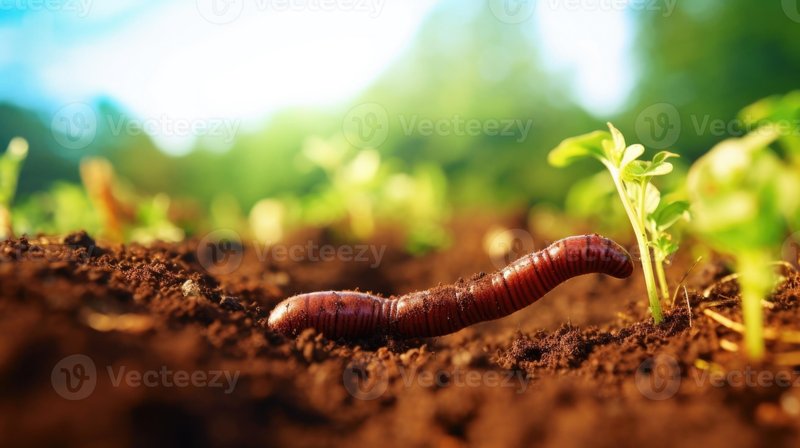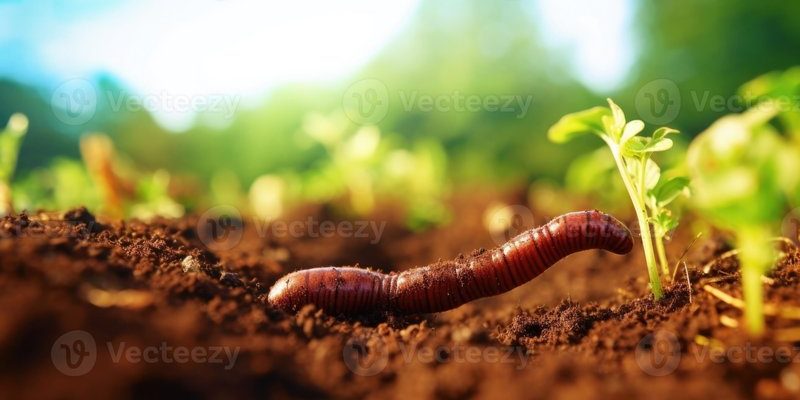
You might be wondering, “How can I help earthworms in my own backyard?” Well, it’s easier than you think! Using organic practices not only benefits your garden but also creates a healthy environment for these squishy soil superheroes. Let’s dive into some practical ways to make your garden a haven for earthworms, so they can keep working their magic underground.
Understanding the Importance of Earthworms
Earthworms play a crucial role in our ecosystem. They help turn the soil, allowing air and water to reach deeper layers, which is essential for plants to survive. Imagine them as tiny construction workers, digging tunnels and mixing up the soil. This natural aeration promotes root growth and increases the overall health of your garden.
Plus, earthworms consume organic matter like dead leaves and decaying plants. While munching away, they break it down into nutrient-rich castings. These castings are like gold for your garden, providing essential nutrients that plants crave. When earthworms are thriving, your soil becomes rich and fertile, leading to healthier plants and better yields.
You might not realize it, but gardening activities can often hurt these important creatures. Chemicals, pesticides, and even certain fertilizers can harm them. So, let’s explore how to make choices that support earthworm populations while keeping your garden flourishing.
Creating a Compost Pile
One of the easiest ways to help earthworms is by creating a compost pile. Composting allows you to recycle kitchen scraps and yard waste, turning them into nutrient-rich soil. Think of it as giving earthworms a buffet! They love munching on decomposing organic materials like vegetable peels, grass clippings, and leaves.
To start composting, gather a mix of “greens” (nitrogen-rich materials like fruit scraps) and “browns” (carbon-rich items like dried leaves). Make sure to chop up larger pieces, as smaller bits break down faster. Layer your compost and turn it regularly to aerate it, which promotes faster decomposition and provides a cozy home for earthworms.
As your compost breaks down, earthworms will find their way into the pile, attracted by the abundance of food. You’ll be amazed at how quickly this process transforms your scraps into rich compost that benefits your entire garden.
Avoiding Chemical Pesticides
Using chemical pesticides might seem like a quick fix for pests, but they can do more harm than good. These products don’t just target harmful insects; they can also harm beneficial creatures like earthworms. Applying these chemicals can lead to soil degradation, reducing the overall health of your garden.
Instead of reaching for those harsh chemicals, consider natural pest control methods. For instance, introducing beneficial insects like ladybugs can help keep pests in check without harming earthworm populations. You can also use neem oil, a natural pesticide extracted from the neem tree, which is safer for beneficial organisms.
All in all, creating a pest-friendly environment not only protects earthworms but also encourages a balanced ecosystem in your garden, leading to healthier plants in the long run.
Using Organic Mulch
Mulching isn’t just about aesthetics; it plays a vital role in earthworm conservation, too. Organic mulch, like shredded leaves, straw, or wood chips, provides a perfect habitat for earthworms while also enriching the soil as it breaks down.
When you spread mulch around your plants, it helps retain moisture, suppresses weeds, and regulates soil temperature. This creates a stable environment for earthworms, allowing them to thrive below the surface. As the organic mulch decomposes, it adds rich nutrients back into the soil, creating a win-win situation for your garden.
To create the best mulch layer, aim for about 2-4 inches thick. Be sure to keep it a few inches away from plant stems to prevent rot. Over time, you’ll notice the difference in soil quality and plant health, all thanks to those hard-working earthworms!
Encouraging Natural Habitat
Creating a natural habitat for earthworms goes beyond just adding compost or mulch. Earthworms thrive in environments rich in organic matter and microorganisms. One simple way to enhance their habitat is by planting a diverse range of plants. When your garden has a variety of flowers, vegetables, and herbs, this diversity creates a healthy ecosystem that earthworms love.
Additionally, leaving some areas of your garden wild or untended can also help. Instead of clearing every bit of debris, consider leaving some fallen leaves or plant debris in certain areas. This not only provides earthworms with food but also fosters a microhabitat where they can thrive.
By thinking about the overall layout and environment of your garden and making small changes, you can create a welcoming space for earthworms. They’ll thank you by working hard to improve your soil!
Practicing No-Till Gardening
Many gardeners swear by no-till practices, and for a good reason. Tilling can disrupt the soil structure and harm earthworm populations by exposing them to harmful conditions and air. Instead, no-till gardening allows you to cultivate plants without disturbing the soil too much, which keeps earthworms safe and sound.
By using techniques like sheet mulching or planting cover crops, you can enrich the soil naturally without disturbing the earth below. Cover crops, like clover or rye, protect soil from erosion and provide organic matter when turned into the ground.
Choosing no-till practices means you’re caring for your garden in a way that supports not just plants, but the entire ecosystem, including earthworms.
Monitoring Soil Health
Finally, keeping an eye on your soil health is essential for earthworm conservation. Healthy soil means a thriving ecosystem for these little creatures. You can test your soil’s pH and nutrient levels with simple testing kits available at garden stores.
Another way to monitor soil health is by observing earthworm activity. If you notice a decline in earthworm populations, it could signal a problem with soil quality or health. You might also look for signs like poor plant growth or stunted vegetation.
Taking proactive steps to improve soil health benefits earthworms and creates a thriving garden. Whether it’s adjusting pH or adding organic materials, every action counts in conserving these valuable soil partners.
In conclusion, conserving earthworms is about making choices that support their survival and health in our gardens. With a little effort, you can use organic practices that not only benefit these essential creatures but also result in a flourishing garden. From composting to avoiding chemicals, every step you take helps create a thriving ecosystem right beneath your feet. Embrace these practices, and soon enough, you’ll see the positive impact on your plants and soil. Happy gardening!

